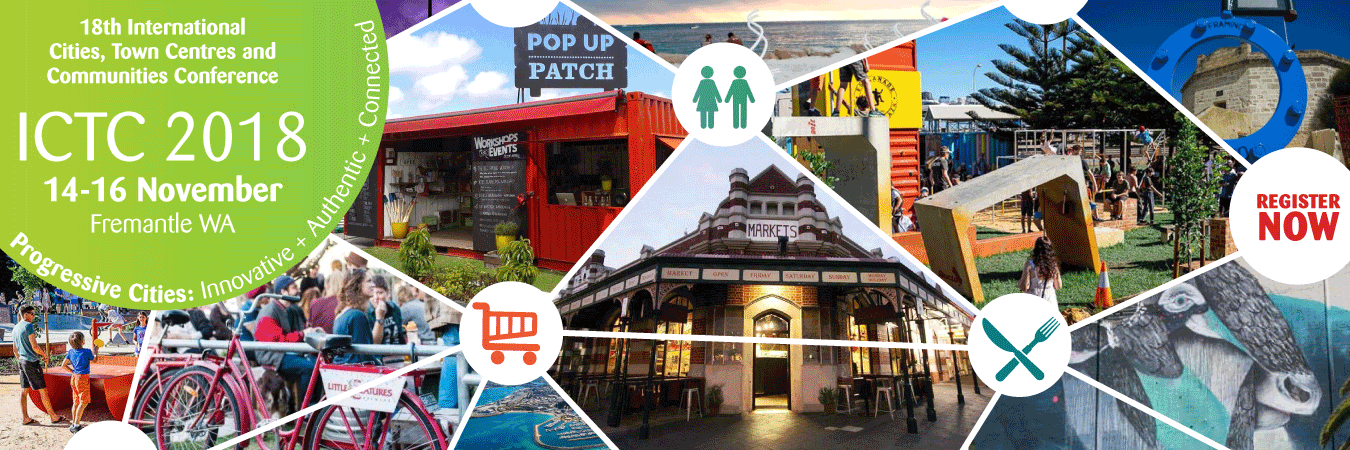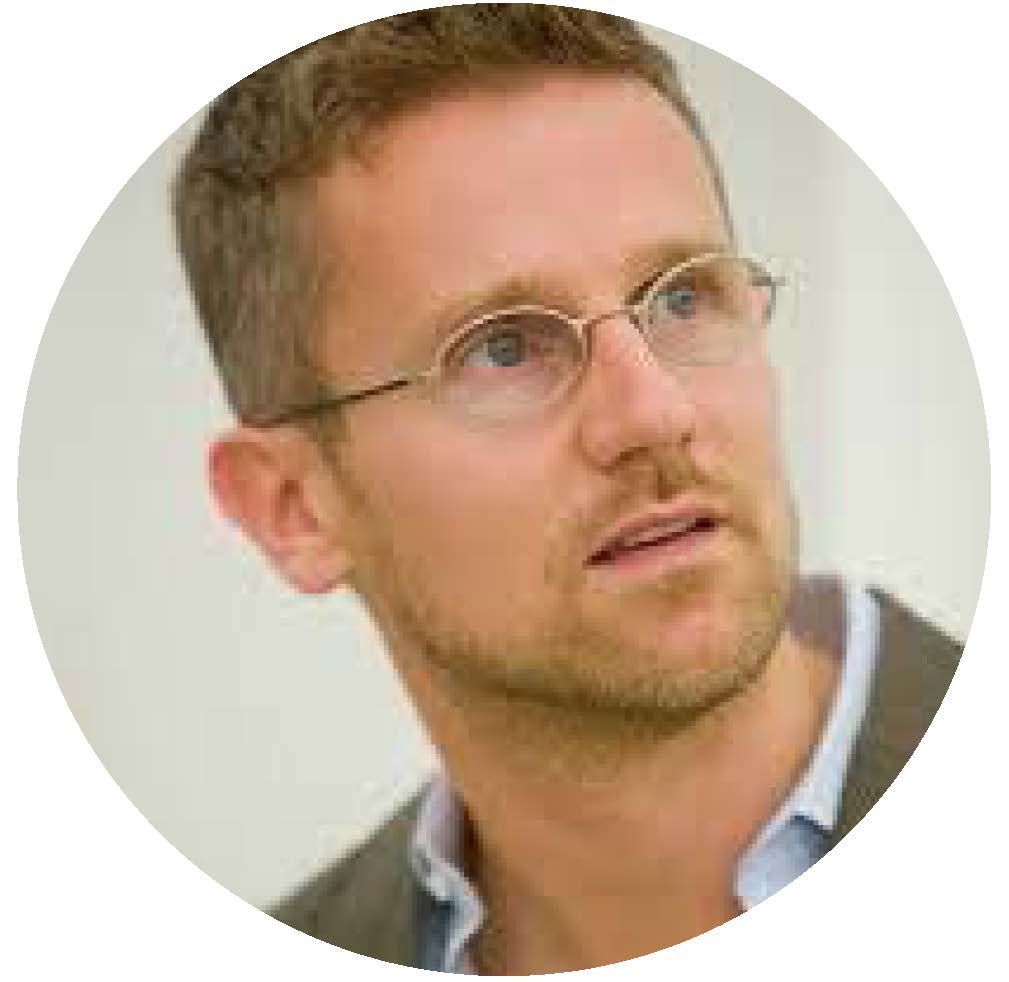 Carlo Ratti
Director, SENSEable City Lab, Massachusetts Institute of Technology, Boston, USA & Founding Partner, Carlo Ratti Associati, Italy
Proudly sponsored by the City of Mandurah Keynote Presentation Senseable Cities The way we live, work, and play is very different today than it was just a few decades ago, thanks in large part to a network of connectivity that now encompasses most people on the planet. In a similar way, today we are at the beginning of a new technological revolution: the Internet is entering the physical space – the traditional domain of architecture and design – becoming an “Internet of Things” or IoT. As such, it is opening the door to a variety of applications that – in a similar way to what happened with the first wave of the Internet - can encompass many domains: from energy to mobility, from production to citizen participation. The contribution from Prof. Carlo Ratti will address these issues from a critical point of view through projects by the Senseable City Laboratory, a research initiative at the Massachusetts Institute of Technology, and the design office Carlo Ratti Associati.
Biography Carlo Ratti is an architect, engineer and Professor at the Massachusetts Institute of Technology (MIT) in Boston, where he heads the Senseable City Lab—a research group that explores how new technologies are changing the way we understand, design and ultimately live in cities. He is also a founding partner of the international design and innovation office Carlo Ratti Associati (CRA). Drawing on Ratti’s research at MIT, the studio develops innovative design projects, merging high-profile architecture and urban planning with cutting-edge digital technologies, so as to contribute to the creation of intelligent cities and buildings.
Significant achievements of the office include the masterplan for a creative hub in the City of Guadalajara, the Future Food District at Expo Milano 2015, the renovation of the Agnelli Foundation HQ in Turin and the Digital Water Pavilion at Expo Zaragoza 2008, with the latter named among the ‘Best Inventions of the Year’ by Time magazine. Product design projects range from experimental furniture for Cassina to light installations for Artemide and responsive seating systems with Vitra. Fast Company has named Carlo as one of the “50 Most Influential Designers In America” and “Thames & Hudson” among the “60 innovators shaping our creative future.” He has also been listed in Forbes as one of the “Names You Need To Know” and in Wired listed as one of the “50 people who will change the world. Carlo graduated from the Politecnico di Torino and the École Nationale des Ponts et Chaussées in Paris and holds a Masters in Philosophy and a PhD in Architecture from the University of Cambridge, in England
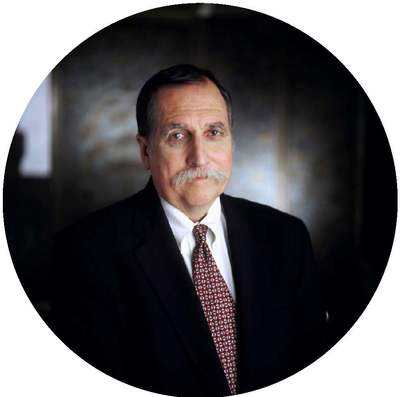 Ed McMahon
Urban Land Institute, USA Chair National Main Street Center America
Keynote Presentation
The New Formula for Community Revitalization
The world is rapidly changing. This keynote presentation will discuss how communities, both big and small, can grow without losing their heart and soul. It will examine the reasons why some places are thriving , while others are failing and it will showcase the strategies that successful communities are using to maintain their economic vitality and quality of life in a globalized world.
Workshop 1
Sustainable Destinations: 10 Principles for Responsible Tourism
Tourism is big business, but it is also a double-edged sword. The impacts of tourism on a community can be beneficial if planned and managed, or extremely damaging if left without controls. This session will examine how communities can maximize the benefits of tourism , while minimizing the problems. It will set out Ten Principles for Responsible Tourism and it will provide numerous examples of successful tourism plans and programs.
Workshop 2
Active Transportation and Real Estate: The Next Frontier
This session will explore how the growing interest in biking, walking, car sharing and other transportation trends that are reshaping communities around the world and how developers and city officials can leverage these trends to give their communities a competitive advantage.
Biography
Ed McMahon is the Senior Fellow for Sustainable Development and Charles E. Fraser Chair for Sustainable Development and Environmental Policy at the Urban land Institute. Ed is also the Chair of the Board of Directors for the National Main Street Center America.
He is recognised in the United States as an inspiring and thought-provoking speaker and a leading authority on topics such as the links between health and the built environment, sustainable development, land conservation, smart growth, and historic preservation. He recently presented “Where am I? The Power of Uniqueness” at TEDxJacksonville.
McMahon has authored and co-authored 15 books, including Conservation Communities: Creating Value with Nature, Open Space, and Agriculture; Better Models for Development in Virginia; Developing Sustainable Planned Communities; Green Infrastructure: Connecting Landscape and Communities; Land Conservation Finance; and Balancing Nature and Commerce in Gateway Communities. He also writes regularly for Urban Land magazine, Citiwire, Planning Commissioners Journal, and other periodicals.
Over the past 25 years, McMahon has helped communities in all 50 states of America with a wide variety of community planning and economic development issues. McMahon serves on several advisory boards and commissions, including the National Trust for Historic Preservation, Preservation Maryland, the Governor’s Institute for Community Design, and the Orton Family Foundation.
Earlier in his career Ed taught law and public policy at Georgetown University Law Center for nine years.McMahon has an MA in urban studies from University of Alabama and a JD from Georgetown University Law School.
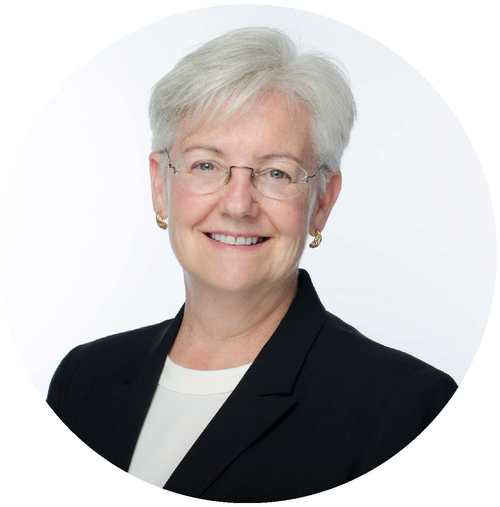 Kate Joncas Kate Joncas
Owner, PlaceStrategic, Seattle, USA
(Former Seattle Deputy Mayor & CEO, Downtown Seattle)
Keynote Presentation
Seattle’s
Incredible Growth and Prosperity: Looking Behind the Curtain at the
Challenges and Opportunities for Transportation, Housing, Social Equity and the
Environment Seattle has been the fastest growing city in the United States for the past decade, growing a staggering 18.7 percent to 750,000 people, while the region grew at a similar pace to 3.9 million people. A lot of this growth is fueled by Amazon’s 2007 decision to locate in Downtown and their subsequent addition of 40,000 employees. This catalyzed the regional growth in software development, attracting over 100 companies from Facebook to Google to Disney. Software developer is now the most common occupation in the Seattle area.
Seattle has one of the most vibrant Downtowns in the United States. Sixty eight projects worth over $4.3 Billion (US) are under construction in Downtown including over 6,000 apartment units. Downtown has vibrant retail, 70,000 residents and is active 18 hours a day. Seattle has the hottest housing market in the country, a designation it has held for 19 straight months.
This prosperity has also brought challenges. Seattle home prices in March rose 13 percent over the same period a year ago, and the number of homeless people has increased, with cost of housing being a major factor. We have been successful in moving commuters out of their cars and onto transit and bikes, but the demand has challenged our transit system and many buses are overcrowded. One study named Seattle as No. 20 for traffic congestion on a list of the 25 largest cities on Earth, beating out much bigger cities like Saint Petersburg and Rio de Janeiro. Fortunately it is not all bad news! New technology and new partnerships are providing solutions as we try to balance growth and quality of life, and I look forward to sharing our experience and learning from conference attendees.
Biography
As owner of PlaceStrategic, Kate offers strategic planning, urban and community development and non-profit management strategies to clients who need to solve complicated problems. As Seattle Deputy Mayor from 2014 - 2017 she managed City operations, led complex intergovernmental projects including waterfront redevelopment and Convention Center expansion, and developed a nationally recognized government performance initiative. Before that she was Downtown Seattle Association CEO for 20 years where she led one of the most successful revitalization projects in the country, creating a vibrant Downtown with great retail, transportation and jobs, thousands of residents, a growing, diverse economy. She is active in the international downtown community and in Seattle, sitting on numerous Boards and commissions.
 Brian Haratsis Brian Haratsis
Executive Chairman, Macroplan Dimasi & National Co-Chair, Australian Driverless Vehicle Initiative
Keynote Presentation
Post Mainstreet: Towards new town centre paradigms
Brian’s presentation will be covering:- Harnessing Online retail and the implications for bricks and mortar
- Last mile delivery
- Coworking spaces
- Attracting key economic growth sectors e.g. business services, health and medical , tourism, international education - the new equation
- Key physical impacts on town centres including car parking , new infrastructure requirements and new store format
- How regional and remote areas can thrive.
Biography
Brian is a futurist, best selling author and thought leader regarded by corporate Australia as the leading economic and strategic advisor in the property sector locally and internationally.
He has over 30 years experience delivering business and property strategy, precise forecasting of niche trends, successful facilitation of strategic outcomes and delivery of major projects and policies.
Brian commands an unparalleled, on -the-ground knowledge of property markets across Australia, having worked extensively and regularly in all capital cities and key regional markets.
Brian’s third book Destructive Cities analyses how the service sector, globalisation and technology can reshape Australia. The book builds on Australia 2050: A Big Australia (2010) and Beyond the Fringe (2012) and informs transformational rather than trend thinking.
 Professor John Cole OAM Professor John Cole OAM
Executive Director, Institute for Resilient Regions, University of Southern Queensland
Keynote Presentation
Living the dream: strategies for resilient regions in tomorrow's world
John’s presentation will cover:
- How regional towns and cities stay competitive as emerging technologies change our way of life.
- How to empower regional communities to grow and innovate and build community pride with limited budgets and resources
- How regional towns/cities leverage their uniqueness and authenticity and to build on viable synergies and partnerships
- What barriers are there for progress and what challenges lie ahead to ensure regional towns grow rather than decline
Specifically John will be taking a closer look at: - Places, human systems, history and risk – the Australian challenge
- Escaping deficit: why vision and narrative matter most
- Engaging change with deliberative engagement
- Mobilising core capitals to build capacity and create opportunity
- Resilience in regional organisation and strategy
- Why the future changes everything?
Biography Professor John Cole is the Executive
Director of USQ’s Institute for Resilient Regions at the University of Southern
Queensland. The Institute delivers applied research helping regional
communities be great places to work and live. He also chairs Queensland’s Rural Economies Centre of Excellence, a
collaboration between USQ, UQ, CQU and JCU, and the Queensland Government. In 2016, Professor Cole was awarded
the Medal of the Order of Australia (OAM) for his service to the environment,
to higher education and to the community. Here and overseas he has been a
long-time adviser to industry, government and communities on sustainable
development. In 2012 he was awarded the Queensland Premier’s Award for
Leadership in Sustainability, for promoting sustainability innovation in
Queensland’s regions and industries. A passionate promoter of civic engagement
and community initiative, Professor Cole is also an Ambassador the Queensland
Plan, a 30-year vision for the state.
Professor Cole is also an Honorary
Professor at The University of Queensland Business School advising on corporate
social responsibility and business, sustainability innovation as business
strategy, and business in a climate changing world.
He has a PhD in Australian demographic
history from UQ (1981) and is a recipient of a Fulbright Postdoctoral
Fellowship (1983) and an alumnus of the US Government’s International Visitor
Program (1999). 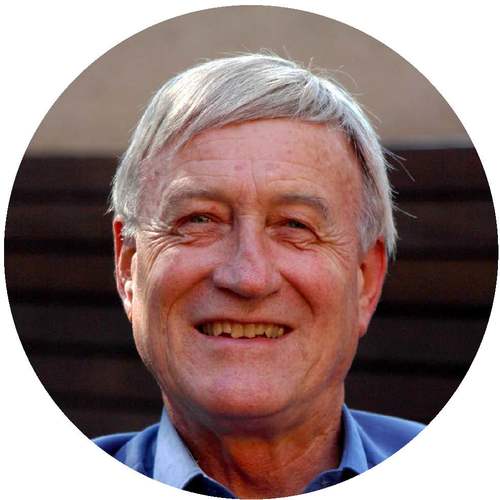 Professor Peter Newman AO Professor Peter Newman AO
Professor of Sustainability, Curtin University WA
Presentation
The Rise and Rise of the 'Local' Renewable City The extraordinary growth of rooftop solar continues and is now completely disrupting the traditional utility model. Local places like Fremantle are rebuilding a model for the grid that enables it to continue as a shared common good resource.
The only global Peer-to-Peer trading is now underway at WGV and the new City of Fremantle experiment across the city, are demonstrating how it can work. The next phase of community batteries, EV’s and AV’s will only make the future of the ‘local’ renewable city arrive more dramatically, in cities and the bush. The presentation will end with a vision of how a local city like Fremantle could work in the next ten years, in power and transport, as well as showing how the pressure will now shift to how shipping, aviation, agriculture and energy-intensive industry, will need to play catch up with this ‘local’ model in decarbonizing the economy. Biography Peter Newman is the Professor of Sustainability at Curtin University in Perth, Australia. He has written 20 books and over 340 papers on sustainable cities. He is a Co-ordinating Lead Author for the IPCC on Transport and his latest book is Resilient Cities: Overcoming Fossil Fuel Dependence.
In 2014 he was awarded an Order of Australia for his contributions to urban design and sustainable transport. Peter has worked in local government as an elected councilor, in state government as an advisor to three Premiers and in the Australian Government on the Board of Infrastructure Australia and the Prime Minister’s Cities Reference Group.
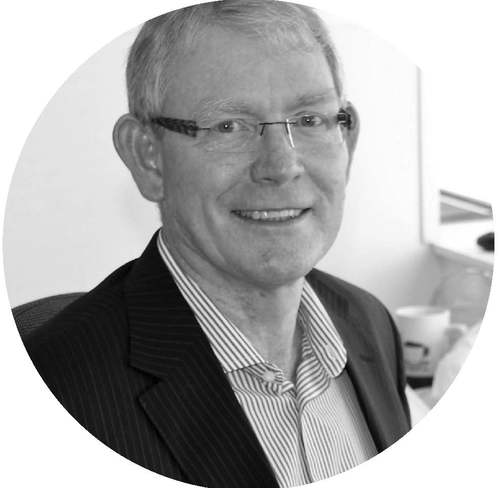
Pat Walker
Executive General Manager Advocacy and Members, RAC
Presentation
Integrated Mobility and Creating a Connected City
Resilient, inclusive and prosperous cities and towns depend on the provision of safe, efficient and sustainable mobility options for their communities. From the uptake of electric vehicles, to public transport and cycling, combined with collaborative car sharing and autonomous vehicles - our reliance on the personal motor vehicle is changing. Pat Walker will discuss the dramatic shift in transport and mobility and explain why we need to act today in order to prepare for this imminent future.
Biography Patrick Walker commenced his current position as Executive General Manager, Advocacy and Members at the RAC in July 2011. Immediately prior to this, he was the Director General, Department of Indigenous Affairs from 2008.
Patrick was a Commissioner at the Australian Competition and Consumer Commission (ACCC), Commissioner for Consumer Protection and Prices Commissioner in Western Australia for 10 years and during this period he was also a member of the Legal Aid Commission of Western Australia, the Medical Board of Western Australia, a Trustee of the national Travel Compensation Fund and Chairman of Workpower Incorporated, which provides employment opportunities for people with disabilities.
Patrick has also had extensive management experience in local government, with his most recent position being Chief Executive Officer at the City of Subiaco (1993 to 1998). During this time he was elected as State President and as a National Director of the Local Government Managers’ Association.
|



 Kate Joncas
Kate Joncas  Brian Haratsis
Brian Haratsis Professor John Cole OAM
Professor John Cole OAM Professor Peter Newman AO
Professor Peter Newman AO
